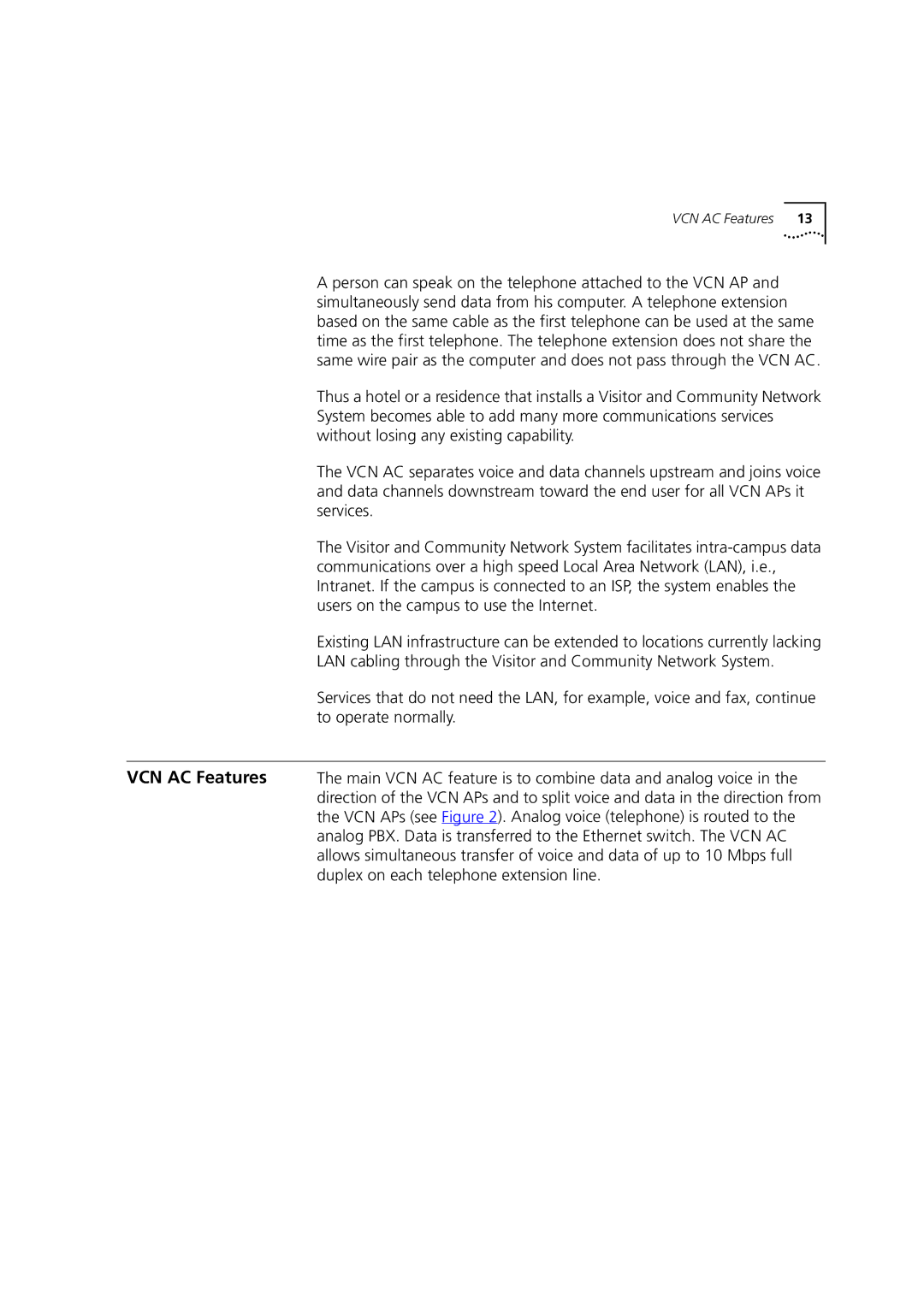
VCN AC Features 13
A person can speak on the telephone attached to the VCN AP and simultaneously send data from his computer. A telephone extension based on the same cable as the first telephone can be used at the same time as the first telephone. The telephone extension does not share the same wire pair as the computer and does not pass through the VCN AC.
Thus a hotel or a residence that installs a Visitor and Community Network System becomes able to add many more communications services without losing any existing capability.
The VCN AC separates voice and data channels upstream and joins voice and data channels downstream toward the end user for all VCN APs it services.
The Visitor and Community Network System facilitates
Existing LAN infrastructure can be extended to locations currently lacking
LAN cabling through the Visitor and Community Network System.
Services that do not need the LAN, for example, voice and fax, continue to operate normally.
VCN AC Features The main VCN AC feature is to combine data and analog voice in the direction of the VCN APs and to split voice and data in the direction from the VCN APs (see Figure 2). Analog voice (telephone) is routed to the analog PBX. Data is transferred to the Ethernet switch. The VCN AC allows simultaneous transfer of voice and data of up to 10 Mbps full duplex on each telephone extension line.
